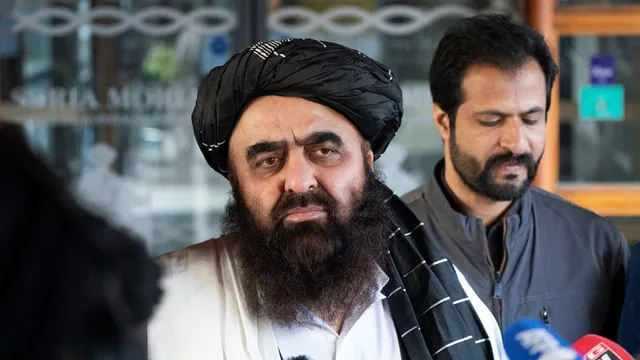- By Shivangi Sharma
- Thu, 02 Oct 2025 08:09 PM (IST)
- Source:JND
Afghanistan’s Foreign Minister, Amir Khan Muttaqi, is scheduled to visit India next week, marking a notable development in Delhi-Kabul relations. Muttaqi, who has held the position since the Taliban assumed control of Afghanistan in August 2021, will be in New Delhi from October 9 to 10. His visit comes after receiving a temporary travel exemption from the United Nations Security Council, which normally bars senior Taliban officials from international travel under Resolution 1988 (2011).
Muttaqi’s visit is part of efforts to strengthen development partnerships between India and Afghanistan and maintain diplomatic engagement despite the Taliban regime remaining largely unrecognised internationally. The exemption, approved by the UN Security Council’s sanctions committee on September 30, allows him to travel to India for talks and bilateral engagements. A previous attempt to facilitate a similar visit earlier this year was blocked due to US opposition.
ALSO READ: PoK Protests: What's Fueling Civilian Unrest In Pakistan-occupied Kashmir? 5 Key Reasons
Regional Tensions And Geopolitics
Muttaqi’s visit comes amid rising tensions between Kabul and Islamabad. Pakistan has accused Afghanistan of sheltering Tehreek-e-Taliban Pakistan (TTP) cadres and conducted cross-border airstrikes, which the Taliban leadership strongly condemned. Disputes along the Durand Line, the contentious Afghanistan-Pakistan border, continue to exacerbate regional friction.
Afghanistan’s Deputy Minister of Medicine and Food, Hamdullah Zahid, attended the 11th International Exhibition on Pharmaceuticals and Healthcare last month. India continues to focus on humanitarian aid, development projects, and regional stability while maintaining communication channels with Kabul.
Taliban’s Return To Power And Global Recognition
Since the Taliban regained power in August 2021, Afghanistan’s political and social landscape has dramatically changed. The group seized Kabul following the withdrawal of US-led forces, forcing then-President Ashraf Ghani to flee. While most countries have not recognised the regime, Russia became the first to do so in July. India, though not extending formal recognition, continues engagement to address security and humanitarian concerns.
ALSO READ: 'Netflix And Chill' Just Got Musked: How One Move By Elon Musk Cost Streaming Service Millions

